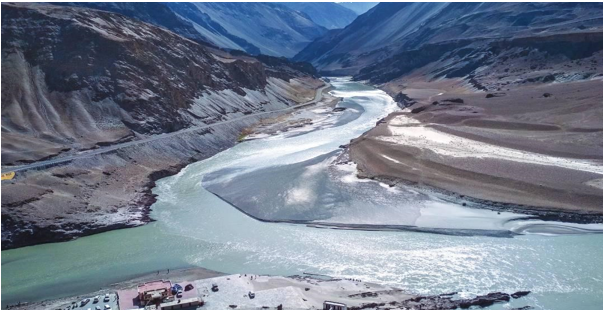i INP-WEALTHPK
Amir Saeed
India’s unilateral suspension of the Indus Waters Treaty (IWT) threatens Pakistan’s energy security as it would reduce hydropower capacity and increase the country’s dependence on costly fossil fuels, highlighting the urgent need for water management reforms to protect the economy.

Talking to WealthPK, Ahad Nazir, Energy Policy and Project Management Specialist at the Sustainable Development Policy Institute (SDPI), said: “Hydropower currently accounts for about 25% of Pakistan’s electricity supply. Reduced water flows from the Indus basin could decrease hydropower output by 15-20% during drought years, significantly disrupting electricity generation.”
“This shortfall would force Pakistan to increase its dependence on costly imported fossil fuels such as LNG, coal, and oil, inflating the country’s energy import bill and exposing it to global fuel price volatility. The resulting rise in electricity costs would negatively affect both industrial competitiveness and household affordability,” he said.
Nazir also pointed out the indirect energy risks associated with water scarcity in agriculture. “Since the country’s textile industry relies heavily on domestically grown cotton, which depends on irrigation from the Indus basin irrigation system, any reduction in water availability threatens cotton production.”
“This, in turn, affects the energy demand patterns of the textile sector and the broader industrial base,” he said, stressing that without urgent reforms in water management, including improving water storage capacity and adopting efficient irrigation technologies, Pakistan’s energy and industrial sectors will face increasing challenges.
Talking to WealthPK, Dr Anwar Shah, a development economic researcher at Quaid-i-Azam University, Islamabad, highlighted that water is a vital input for energy production, and any reduction in water availability directly lowers energy output, particularly hydropower.
He opined that while Pakistan has alternative energy options like renewables and imported fossil fuels, these require considerable time and investment to fully develop. “In the short term, decreased water flows from the Indus basin will significantly reduce hydropower capacity, posing immediate risks to the country’s energy stability.”
“This creates a pressing challenge, as hydropower currently forms a substantial part of the country’s electricity supply,” he said and highlighted the strong link between water and energy security. He warned that disruptions in water resources can quickly lead to energy shortages.
He cautioned that these shortages not only threaten the energy sector but will also have broader economic consequences, affecting industrial productivity and national development. “Therefore, addressing water-related challenges is crucial to maintaining the country’s energy security and overall economic resilience.”
Credit: INP-WealthPk



